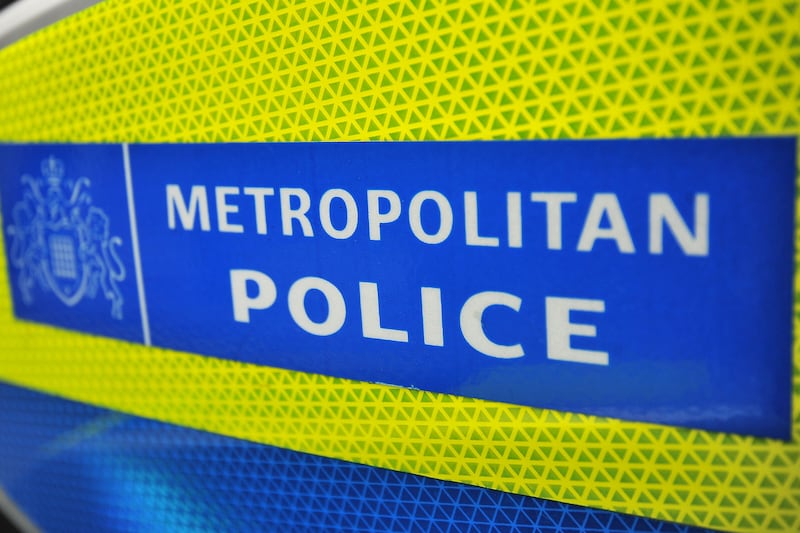Calls made to an anti-slavery helpline have reached a record high, with the number of potential victims in the care sector rising by almost a third and the first suspected cases of forced surrogacy reported.
There was a total of 11,700 contacts to the modern slavery and exploitation helpline in 2023, up by almost a fifth from 9,779 contacts in 2022.
Anti-slavery charity Unseen released UK-wide data ahead of its annual report, due to be published next week, showing that contacts to its helpline through calls, on its web form or through its app have risen “significantly” for the fourth year in a row.
In the care sector – an area which has for some time been seen as one of concern for exploitation of workers – the number of potential victims rose by 30% to 918, up from 708 in 2022, Unseen said.
The charity said three potential victims of forced surrogacy had been indicated through the helpline last year – the first time that issue had come up and something the Independent Anti-Slavery Commissioner described as alarming.
One of the three cases was thought to involve various types of exploitation, the charity said, but gave no further details on any of the cases because of concerns about identifying them.
It defined forced surrogacy as involving a potential victim forced or coerced into carrying a pregnancy for another individual.
The overall rise in contacts to the helpline was described by the charity’s director Justine Carter as “indicating that we are succeeding in raising awareness of the issue and mobilising more people to act”.
But she warned that the “ever-increasing hostile environment” towards migrants and foreign workers in the UK could be putting people off reporting concerns for fear of deportation.
Giving a breakdown by police force area, Unseen said there were 99 modern slavery potential victims and 52 cases reported in Scotland, 93 potential victims and 11 cases in Northern Ireland, 811 potential victims and 259 cases in London and 90 potential victims and 19 cases in South Wales.
The latest data showed that while contacts to the helpline were up there was a fall in the number of potential victims reported – down 10% to 5,876 in 2023 – and the number of modern slavery cases reported – down 16% to 2,185 last year.
Ms Carter said: “We remain concerned that the ever-increasing hostile environment in the UK towards migrants and foreign workers means that fewer people feel able to raise concerns and seek the help and support that they desperately need.
“More needs to be done to encourage victims to come forward and to properly resource efforts to stamp out modern slavery and exploitation for good.”
Unseen said its latest report covers potential victims from 106 countries, which is up from 99 countries in 2022.
For the first time, India was the most prevalent potential victim nationality – which the charity said was predominantly put down to labour exploitation within the care sector.
The other most common nationalities were Romanian, Albanian, Vietnamese and Chinese.
Other data showed four cases of organ harvesting reported, following the first such case being indicated in 2022; and a doubling of forced scamming cases from two involving 11 potential victims to four cases involving 41 potential victims in 2023.
Forced scamming involves someone being forced into instigating online scams to fraudulently gain funds for the person or people exploiting them, the charity said.
The number of potential victims of criminal exploitation rose by more than a fifth (21%) to 385 in 2023; labour abuse cases were up by 11% to 516 in 2023; and cases involving potential child victims rose by 3% to 340 last year.
Independent Anti-Slavery commissioner Eleanor Lyons said it was concerning that “criminals are finding new and shockingly ruthless ways to exploit victims”.
She added: “Alarmingly, for the first time we have seen cases of forced surrogacy being reported. This is alongside a rise in the reporting of organ harvesting and forced scamming of victims.
“We must do more to tackle the perpetrators behind these heinous crimes. We cannot yield in our efforts to tackle modern slavery and more must be done to prevent individuals from becoming exploited and protect them from harm.”
Earlier this year, Ms Lyons told the Home Affairs Committee, as she appeared before it for the first time in her role, that modern slavery and human trafficking is “no longer the priority that it was” for the Home Office while it focuses on “tackling illegal migration and small boats”.
In March, official figures showed that the number of potential victims of modern slavery referred into the system reached a record level last year, with referrals for women and children both at all-time highs.
Some 17,004 potential victims of modern slavery – which includes any form of human trafficking, slavery, servitude or forced labour – were referred to the Home Office in 2023, up slightly from 16,921 in 2022.
A Government spokesperson said: “Modern slavery is a barbaric crime and we are committed to ensuring that needs-based support is available to victims to help them rebuild their lives, and to working with first responders to ensure victims understand the support and protection available.
“To address concerns about abuse within the health and care worker sector, providers in England are now only able to sponsor migrant workers if they are undertaking activities regulated by the Care Quality Commission.”









